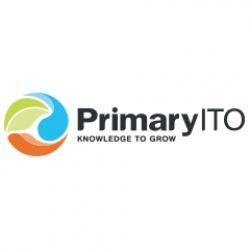
Identifying literacy and numeracy support needs of ITO trainees to successfully complete qualifications
Status
Completed: 3 July 2016
Project Details
A project, completed in 2016, to identify the literacy, language and numeracy (LLN) needs of trainees in order for them to complete higher level tertiary qualifications. A collaboration involving Waikato Institute of Technology (Wintec), DairyNZ and Dairy Training Ltd, led by the Primary Industry Training Organisation.
Aims:
The project’s key aims were to investigate:
- the LLN requirements of trainees studying higher level tertiary qualifications
- the LLN skills and support that trainees need to complete higher level tertiary qualifications
- the extent to which tutors felt equipped to support trainees’ LLN needs
- the tools and resources needed to remove LLN barriers and enhance trainees’ learning achievements.
Methodology:
A case study methodology was used, which included:
- a review of the LLN literature at Foundation and higher-level learning
- a review of the Diploma pilot programme structure including examination and interpretation of the LLN elements
- interviews and an online questionnaire conducted with four stakeholder groups: current pilot programme trainees and trainees who had withdrawn; tutors from the pilot and representatives of other Diploma providers; Primary ITO training advisers; and representatives of the collaborating organisations (Wintec, Dairy Training Ltd and DairyNZ).
Team

Marianne Farrell
Project Leader
Primary ITO
Mike Styles
Primary ITO
Dr Lesley Petersen
Petersen ConsultingStatus
Funding
$22,650.00 (excl GST)
Key Findings
Assessing trainee’s LLN proficiency
- There were no formal LLN processes for recruitment to the Diploma programme and there was no requirement for programme providers to administer the ALNAT with trainees.
Embedding LLN in the Diploma
- Tutors indicated that they had no specific strategies in place to address any trainee LLN deficit. They also noted that there were no LLN support and skill development strategies integrated in the course materials as trainees are enrolled based on the assumption that they have the necessary LLN skills to complete the programme to the required academic standards.
Challenges to learning
- Tutors’ challenges included the time to develop trainees’ LLN skills, time to create appropriate resources and managing a wide range of LLN levels in each class.
- Trainees’ challenges included: needing assistance from the tutor for LLN support; getting help with the reading and writing from their partner or friends; the time needed to complete assignments; work and other commitments such as family and child care; and a lack of farming experience or no farming background.
Evaluation of the pilot programme
- A range of formal and informal processes and tools were used to evaluate the programme including: summative evaluation forms at the end of the course, student experience surveys, verbal feedback from the trainees during and at end of a course, pass rates, completions, and analysis of trainee withdrawals.
Trainee support and outcomes
- Tutors identified several strategies they found to be successful in supporting trainees and improving trainee outcomes, including peer support, peer tutoring, group work, and technology.
- Training advisors identified providing mentoring support for trainees and finding out the appropriate programme level and support required for trainees as key factors.
- Trainees noted how the tutors supported them in their learning through such methods as tutor availability, interactive teaching strategies, sound content knowledge, good practice and the tutor’s ability to get learning expectations across.
- Trainees also identified a mix of preferences for teaching approaches which they thought supported their learning, for example, face-to-face classes, opportunities for conversations in class and being provided with examples which supported the learning material.
Key Recommendations
Framework for embedding LLN | Develop a framework for embedding LLN in the agribusiness management diploma to assist stakeholders’ decision-making about LLN requirements of the programme, LLN support strategies for trainees, teaching practices which support trainees in meeting the LLN requirements of the programme, and LLN professional development needs of tutors.
Assessing and mapping LLN | Assess trainees’ level of LLN through completion of the Adult Literacy and Numeracy Assessment Tool (ALNAT) and evaluate the results against the LLN requirements of the courses to identify the trainee support mechanisms needed and the LLN professional development needs of tutors.
Tutor professional development | There are a number of opportunities for informal and formal LLN professional development of tutors including: using the LLN profile of the Diploma courses to confirm the level of LLN teaching expertise required of the tutors; completion of formal LLN qualifications such as the NCALNE; tutor LLN self-review checklist; Communities of Practice (face to face and/or online) where LLN practices can be shared and learned from; informal learning from a range of LLN-specific websites, which have resources adaptable to teaching and learning contexts; and annual LLN training workshops run by the Primary ITO.
Review processes | Programme review processes include: undertaking a regular LLN skills review as part of a qualification and skills standards review process; regular reviews of LLN in higher level qualifications; an LLN profile for each module and for new trainees to inform the level that teaching resources need to be pitched at and the relevant LLN skills that need to be built during the trainee’s learning journey; and determining the LLN skills needed through analysis of the performance criteria within the assessment schedule for each course.
A report prepared by Marianne Farrell, Mike Styles and Dr Lesley Petersen.
(PDF, 412 KB, 38-pages).
- 20 March 2016